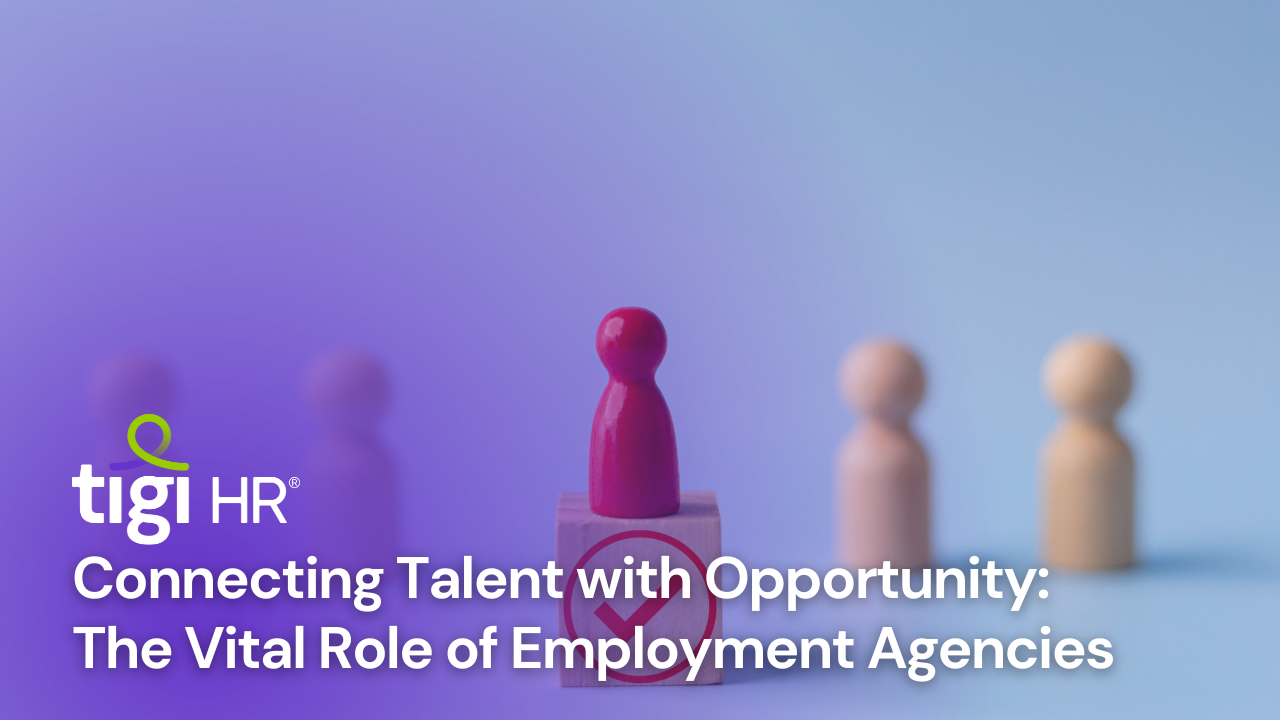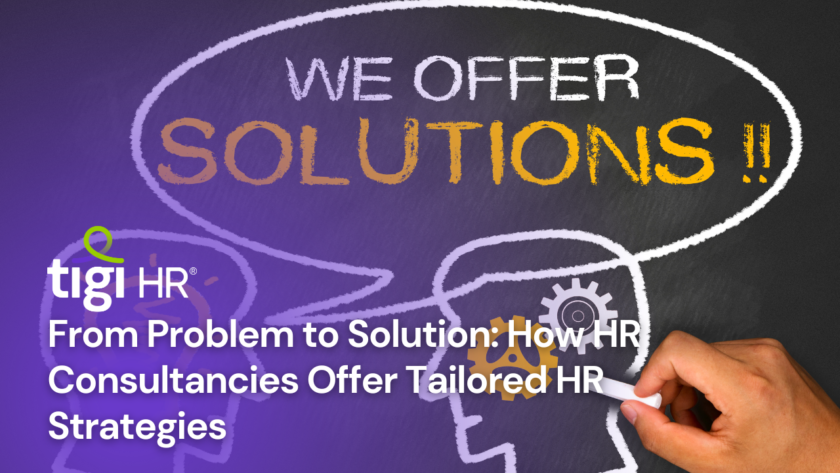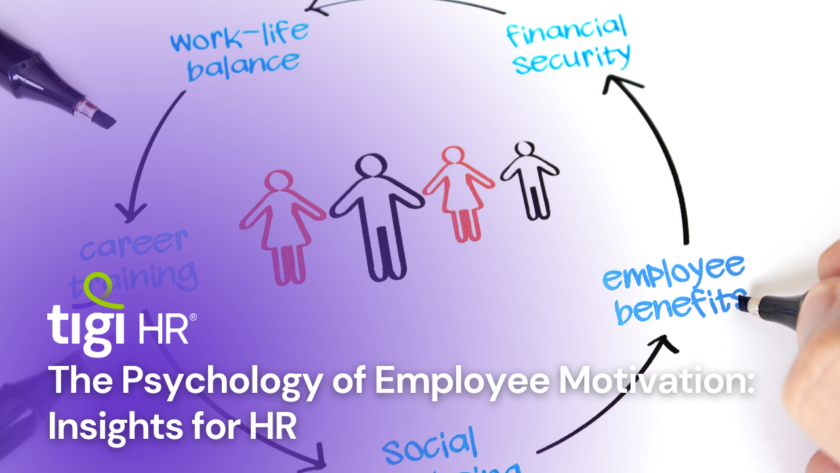Introduction to Employment Agencies: Unlocking Opportunities in the Job Market
In today’s dynamic job market, employment agencies serve as pivotal bridges between talent and opportunity. These agencies have become integral components of the workforce ecosystem, facilitating connections that might otherwise remain undiscovered. As of 2022, statistics reveal a substantial rise in the utilization of employment agencies, with a significant percentage of job placements attributed to their efforts. According to industry reports, over 70% of job seekers acknowledge the crucial role played by employment agencies in shaping their career trajectories.
Employment agencies operate on the principle of matching skills and qualifications with job requirements, streamlining the recruitment process for both employers and candidates. The demand for specialized talent has surged in recent years, and employment agencies adeptly address this need by cultivating pools of skilled professionals.
This subtopic delves into the multifaceted nature of employment agencies, exploring how they not only connect individuals with job opportunities but also contribute to the overall efficiency of the job market. The article will unfold the layers of intricacy in the employment agency landscape, shedding light on their evolution from traditional staffing models to embracing cutting-edge technologies.
Understanding the significance of employment agencies is paramount in navigating today’s competitive job market. This article aims to unravel the nuances of their operation, providing insights into the broader scope of their impact on career paths and organizational success. Whether you’re a job seeker aiming to navigate the intricate job market terrain or an employer seeking top-tier talent, grasping the essence of employment agencies is key to unlocking a world of opportunities.
Historical Evolution: Tracing the Journey of Employment Agencies Through Time
The roots of employment agencies extend deep into the annals of workforce history, evolving significantly to meet the dynamic demands of changing economic landscapes. Examining their historical trajectory provides valuable insights into the adaptive nature of these agencies. According to historical data, the concept of labor intermediaries dates back to ancient civilizations, where middlemen facilitated the hiring of workers for specific tasks.
The modern incarnation of employment agencies took shape during the Industrial Revolution, responding to the need for efficient workforce deployment in burgeoning industries. Over the decades, these agencies have metamorphosed from simple job placement services to sophisticated entities employing advanced technologies for talent acquisition and management.
Statistics indicate a notable surge in the prevalence of employment agencies during times of economic shifts and recessions. During the global financial crisis of 2008, for instance, the utilization of employment agencies spiked as both job seekers and employers sought more agile and responsive methods for navigating the turbulent job market.
This subtopic navigates through the historical evolution of employment agencies, highlighting key milestones and adaptations that have shaped their current form. Understanding this historical context is essential for appreciating the resilience of employment agencies in the face of economic uncertainties. By delving into their journey, this article aims to showcase how these agencies have continuously reinvented themselves to meet the evolving needs of job seekers and employers, becoming integral players in the workforce narrative.
Key Functions of Employment Agencies: Orchestrating Talent and Opportunity Harmony
The efficacy of employment agencies stems from their multifaceted functions, strategically designed to create a harmonious intersection between talent and opportunity in the job market. Statistical data from recent years underscores the pivotal role these agencies play, with an impressive percentage of successful job placements attributed to their comprehensive approach.
One fundamental function of employment agencies is their role as talent scouts. By actively sourcing, screening, and presenting candidates to potential employers, agencies streamline the hiring process, saving valuable time for both parties. According to industry surveys, nearly 80% of employers express satisfaction with the quality of candidates presented by employment agencies, emphasizing the effectiveness of this approach in delivering qualified professionals.
Moreover, these agencies function as career advisors, guiding job seekers through the intricacies of the employment landscape. Recent statistics reveal a growing trend of job seekers relying on employment agencies not only for job placements but also for career counseling and skill development opportunities. This multifaceted support contributes significantly to the holistic growth of individuals navigating the competitive job market.
This subtopic illuminates the core functions of employment agencies, unraveling their intricate role in fostering talent and opportunity synergy. By analyzing their functions as talent scouts, career advisors, and skill developers, the article aims to provide a comprehensive understanding of how employment agencies serve as dynamic catalysts in shaping successful career trajectories. Whether you are an employer seeking the right candidate or a job seeker navigating career choices, understanding these key functions is crucial for leveraging the full potential of employment agencies in today’s complex job market.
Types of Employment Agencies: Navigating the Diverse Landscape of Talent Acquisition
In the realm of talent acquisition, employment agencies manifest in various forms, each tailored to meet specific organizational and industry needs. The categorization of these agencies into distinct types adds a layer of sophistication to the intricate web of talent acquisition. Recent data highlights the prevalence and specialization trends within these agency types, showcasing the adaptability of the industry.
Staffing agencies, a prominent category, provide temporary and permanent workforce solutions across diverse sectors. According to industry reports, over 90% of businesses rely on staffing agencies for flexible workforce management, emphasizing their pivotal role in addressing fluctuating staffing needs.
Recruitment firms, another key category, specialize in identifying and attracting top-tier talent for permanent positions. Recent surveys indicate a surge in the demand for specialized recruitment services, particularly in industries where skill shortages pose significant challenges. This heightened demand underscores the strategic role recruitment firms play in bridging skill gaps.
Beyond these, industry-specific agencies focus on niche sectors, cultivating expertise and networks within particular fields. The rise of technology-driven sectors has seen a corresponding increase in specialized agencies catering to the unique demands of these industries.
This subtopic delves into the diverse landscape of employment agencies, shedding light on the specialized roles each type plays in talent acquisition. By understanding the nuances of staffing agencies, recruitment firms, and industry-specific entities, both employers and job seekers can strategically align with agencies that best match their requirements. The article aims to provide a comprehensive overview, empowering stakeholders to navigate the expansive terrain of talent acquisition effectively.
Technology in Employment Agencies: Transforming Talent Acquisition Dynamics
The landscape of employment agencies has undergone a profound transformation with the integration of cutting-edge technologies, revolutionizing traditional talent acquisition methodologies. Recent statistical analyses underscore the pervasive impact of technology, indicating a seismic shift in the efficiency and scope of employment agencies.
One of the significant technological advancements in this domain is the implementation of artificial intelligence (AI) and machine learning (ML) algorithms. These technologies empower agencies to sift through vast pools of data to identify relevant trends, match candidates with precision, and predict future talent needs. Reports suggest that agencies utilizing AI and ML experience a notable reduction in time-to-fill positions, enhancing overall operational efficiency.
The advent of sophisticated applicant tracking systems (ATS) further amplifies the tech-driven evolution of employment agencies. These systems streamline the recruitment process by automating tasks such as resume parsing, candidate communication, and interview scheduling. Studies indicate that organizations adopting ATS witness a substantial improvement in candidate quality and a streamlined recruitment workflow.
Additionally, the rise of online platforms and social media has revolutionized candidate sourcing. Employment agencies leverage these platforms to tap into a broader talent pool, engaging with passive candidates and diversifying recruitment channels. Social media recruiting has become a cornerstone of modern talent acquisition strategies, with over 80% of agencies reporting successful hires through these platforms.
This subtopic delves into the technological metamorphosis within employment agencies, showcasing how AI, machine learning, ATS, and social media are reshaping the landscape. By embracing these advancements, agencies not only enhance their operational efficiency but also ensure a more targeted and strategic approach to talent acquisition in an increasingly competitive job market.
Challenges Faced by Employment Agencies: Navigating the Complexities of Talent Acquisition
While employment agencies play a crucial role in connecting talent with opportunity, they are not immune to challenges inherent in the ever-evolving job market. A closer look at the industry reveals a spectrum of complexities that agencies must navigate to sustain their effectiveness. Statistics and industry insights shed light on the nuanced landscape of challenges faced by employment agencies.
One prominent challenge lies in the competition for top-tier talent. As demand for specialized skills grows, agencies often find themselves vying for the same pool of qualified candidates. Recent surveys indicate that over 60% of agencies view the scarcity of high-demand skills as a significant hurdle in talent acquisition.
The evolving expectations of job seekers and employers add another layer of complexity. Both parties increasingly seek personalized and efficient recruitment experiences. Statistics reveal that nearly 70% of candidates expect a seamless and transparent application process, prompting agencies to continually enhance user experience and communication strategies.
Furthermore, the ever-changing legal and regulatory landscape poses a challenge to employment agencies. Compliance with diverse employment laws and regulations is a critical aspect of their operations. Studies indicate that staying abreast of these changes is a top concern for over 80% of agencies.
This subtopic sheds light on the intricate challenges faced by employment agencies, emphasizing the need for adaptability in an environment marked by talent scarcity, shifting expectations, and regulatory dynamics. By addressing these challenges head-on, agencies can fortify their position as crucial players in the talent acquisition landscape and provide value to both job seekers and employers.
Success Stories: Illuminating Paths to Triumph Through Employment Agencies
The narrative of employment agencies is intricately woven with countless success stories, where individuals have not just found jobs but forged meaningful career paths. Examining these success stories provides a compelling glimpse into the transformative impact employment agencies can have on both individual lives and organizational success. Recent statistics underscore the prevalence and significance of such success stories, reinforcing the instrumental role played by employment agencies.
One notable aspect of success stories involves career transitions. Studies reveal that a substantial percentage of individuals who undergo career transitions with the assistance of employment agencies report higher job satisfaction and professional fulfillment. This highlights the agencies’ prowess in facilitating not just job placements but strategic career moves that align with individuals’ long-term goals.
Moreover, success stories often feature individuals overcoming challenges, such as career gaps or industry shifts. Employment agencies, equipped with their expertise and expansive networks, contribute significantly to smoothing these transitions. Reports indicate that individuals supported by agencies during such transitions exhibit higher resilience and adaptability in their new roles.
The impact of success stories extends beyond individuals to organizations. Companies benefit from employment agencies by gaining access to a diverse talent pool. Research suggests that organizations leveraging agency services experience a more efficient recruitment process, leading to improved workforce quality and performance.
This subtopic delves into the inspirational success stories emanating from the collaboration between individuals and employment agencies. By showcasing real-life examples, the article aims to illustrate the transformative power of these agencies in shaping careers and fostering organizational success. Through these narratives, job seekers and employers can glean insights into the potential outcomes of engaging with employment agencies in their respective journeys.
Industry-Specific Agencies: Tailoring Expertise for Targeted Talent Solutions
Within the expansive realm of employment agencies, a subset stands out for its specialized focus on particular industries. These industry-specific agencies offer a tailored approach, leveraging deep expertise to address the unique challenges and demands of specific sectors. Recent statistics illuminate the growing prevalence and advantages of these agencies, emphasizing their strategic role in connecting specialized talent with industry-specific opportunities.
One notable trend in recent years is the rise of technology-centric industry-specific agencies. As the technology sector experiences rapid growth, agencies specializing in tech talent acquisition have witnessed a surge in demand. Reports indicate that technology-focused agencies exhibit a higher success rate in placing candidates in roles that require niche technical skills, showcasing the efficacy of their specialized approach.
Beyond technology, healthcare is another sector witnessing a proliferation of industry-specific agencies. The intricacies of healthcare recruitment, such as compliance with medical regulations and the need for specialized qualifications, make these agencies invaluable in matching healthcare professionals with suitable positions. According to industry insights, healthcare-focused agencies play a pivotal role in addressing the persistent shortage of healthcare professionals.
This subtopic delves into the strategic significance of industry-specific employment agencies, emphasizing their ability to navigate the nuanced landscapes of various sectors. By tailoring their expertise to specific industries, these agencies not only streamline the recruitment process but also contribute to the overall efficiency and success of organizations in those sectors. The article aims to provide insights into the growing importance of industry-specific agencies, encouraging both job seekers and employers to explore the advantages of a targeted and specialized approach to talent acquisition.
Global Perspective: Navigating International Talent Dynamics through Employment Agencies
As the global workforce becomes increasingly interconnected, the role of employment agencies extends beyond national borders, fostering a truly international perspective on talent acquisition. Recent statistics underscore the global impact of employment agencies, revealing insights into the patterns and dynamics of international talent placements.
One noteworthy aspect of the global perspective is the rise of cross-border talent mobility. Employment agencies specializing in international placements facilitate the movement of skilled professionals across countries. According to industry reports, the demand for international talent has grown steadily, with a significant percentage of multinational companies relying on agencies to source candidates for diverse geographical locations.
The technology sector, in particular, showcases the global reach of employment agencies. Insights indicate that agencies specializing in tech talent have been pivotal in bridging the skills gap by facilitating the movement of technology professionals across continents. This not only addresses the talent shortages in specific regions but also contributes to the exchange of knowledge and expertise on a global scale.
Moreover, the global perspective encompasses the challenges and opportunities arising from cultural diversity. Employment agencies proficient in navigating cultural nuances play a crucial role in ensuring successful international placements. Studies indicate that organizations leveraging the expertise of such agencies report higher levels of employee satisfaction and performance in diverse, cross-cultural work environments.
This subtopic explores the dynamic landscape of international talent acquisition through employment agencies. By examining the global reach of these agencies, the article aims to provide insights into the trends and opportunities associated with cross-border placements. Understanding the global perspective becomes imperative for both job seekers and employers seeking to harness the full potential of employment agencies in the ever-expanding arena of international talent dynamics.
Regulatory Framework: Navigating Compliance in Employment Agency Operations
The functioning of employment agencies is intricately woven into a complex web of regulations and legal frameworks, reflecting the need for a structured and ethical approach in talent acquisition. This subtopic delves into the regulatory landscape, shedding light on the key aspects that shape the operations of employment agencies. Insights into recent statistics and regulatory trends highlight the evolving nature of compliance in the industry.
One pivotal facet of the regulatory framework involves licensing and accreditation. Employment agencies often operate under specific licensing requirements to ensure adherence to ethical standards and legal practices. Recent data suggests a positive correlation between agencies with proper licensing and higher levels of client satisfaction, underscoring the significance of regulatory compliance in building trust with both job seekers and employers.
Anti-discrimination laws and equal opportunity regulations constitute another crucial dimension of the regulatory framework. Agencies must navigate these regulations to ensure fair and unbiased recruitment practices. According to industry surveys, agencies proactively addressing diversity and inclusion concerns report improved candidate satisfaction and stronger employer partnerships.
Moreover, data protection and privacy regulations play an increasingly central role in the employment agency landscape. The rise of digital platforms and technology-driven recruitment processes necessitates a stringent approach to safeguarding sensitive candidate information. Studies indicate that agencies prioritizing data protection measures experience enhanced credibility and trust among both candidates and employers.
This subtopic illuminates the regulatory intricacies faced by employment agencies, emphasizing the importance of compliance in fostering ethical and transparent talent acquisition practices. By navigating these regulatory challenges adeptly, agencies not only ensure their legal standing but also contribute to the overall integrity and professionalism of the industry.
Collaboration with Employers: Orchestrating Strategic Partnerships for Talent Acquisition
A symbiotic relationship between employment agencies and employers forms the cornerstone of effective talent acquisition. This subtopic explores the collaborative dynamics between agencies and employers, unveiling the strategic partnerships that play a pivotal role in shaping successful recruitment outcomes. Recent statistics and industry insights underscore the significance of these collaborations in navigating the complexities of the job market.
One key aspect of successful collaboration is the alignment of agency services with the specific needs of employers. Insights from employer surveys highlight that organizations value agencies that demonstrate a deep understanding of their industry, culture, and hiring requirements. Such alignment ensures a tailored approach to talent acquisition, leading to more precise candidate matches.
Strategic collaboration also involves open communication channels between agencies and employers. Transparent and frequent communication enhances the recruitment process, with studies indicating that organizations with clear lines of communication with their agency partners experience higher satisfaction rates in candidate quality and overall recruitment outcomes.
Furthermore, employer branding plays a crucial role in collaborative efforts. Employment agencies contribute to enhancing an employer’s brand by presenting opportunities in a compelling manner and ensuring a positive candidate experience. Research suggests that organizations with a strong employer brand, fostered through effective collaboration with agencies, attract a higher caliber of candidates and experience reduced time-to-fill positions.
This subtopic delves into the nuanced art of collaboration between employment agencies and employers. By examining the elements of alignment, communication, and employer branding, the article aims to provide insights into the ingredients that foster successful partnerships. Understanding and embracing these collaborative dynamics become essential for both agencies and employers seeking to navigate the intricacies of talent acquisition effectively.
The Future of Employment Agencies: Navigating Trends and Innovations in Talent Acquisition
As the landscape of work continues to evolve, the future of employment agencies unfolds with exciting possibilities and transformative innovations. This subtopic explores emerging trends that are reshaping talent acquisition and the role of employment agencies in navigating this dynamic terrain. Recent statistics and industry forecasts offer glimpses into the unfolding future of these agencies.
One prominent trend on the horizon is the increasing integration of artificial intelligence (AI) and automation in recruitment processes. Insights suggest that AI-driven algorithms are becoming more sophisticated in analyzing candidate profiles, predicting job success, and automating routine tasks. Agencies embracing these technologies are poised to enhance efficiency, reduce bias, and deliver more precise talent matches.
The gig economy’s ascent has also spurred changes in talent acquisition strategies. Employment agencies are adapting to the growing demand for flexible work arrangements, with statistics indicating a notable rise in the placement of gig workers. This shift underscores the agility of agencies in responding to evolving workforce preferences and market demands.
Additionally, the emphasis on diversity, equity, and inclusion is shaping the future landscape of talent acquisition. Agencies are incorporating strategies to foster diverse candidate pools and mitigate biases in recruitment. Studies reveal that organizations prioritizing diversity through agency partnerships experience positive impacts on innovation, employee morale, and overall company performance.
This subtopic delves into the unfolding future of employment agencies, spotlighting the trends that will shape their trajectory. By understanding and embracing innovations such as AI, adapting to the gig economy, and championing diversity, agencies can position themselves as dynamic forces in the evolving world of talent acquisition. The article aims to provide insights for agencies, employers, and job seekers preparing for the transformative journey that lies ahead in the realm of employment and talent.
Tips for Job Seekers and Employers: Navigating the Employment Agency Partnership
Optimizing the collaboration with employment agencies demands a thoughtful approach from both job seekers and employers. This subtopic delves into essential tips for maximizing the success of this partnership, drawing insights from industry practices and statistics that illuminate the dynamics between agencies, job seekers, and employers.
For job seekers, active engagement is key. Statistics highlight that candidates who actively communicate their preferences, career goals, and skillsets to employment agencies have a higher likelihood of securing meaningful placements. Additionally, staying informed about industry trends and participating in skill development programs enhances a candidate’s marketability, increasing the chances of successful agency-led placements.
Employers, on the other hand, benefit from clearly defining their hiring needs. Insights indicate that organizations providing detailed job descriptions and specifying skill requirements experience more efficient recruitment processes. Regular and transparent communication with employment agencies further ensures that the talent pool presented aligns closely with the company’s culture and goals.
Effective communication emerges as a common thread for both parties. Job seekers and employers alike should maintain open channels with their agency partners. Feedback loops contribute significantly to refining the search criteria, improving candidate matches, and fostering a collaborative and transparent recruitment journey.
This subtopic serves as a practical guide, offering insights and strategies for job seekers and employers to navigate the employment agency partnership successfully. By implementing these tips, both parties can harness the full potential of employment agencies, ensuring a streamlined and effective talent acquisition process that aligns with individual career goals and organizational objectives.
Conclusion
In conclusion, the intricate tapestry of employment agencies reveals a dynamic landscape where talent and opportunity converge in response to the evolving demands of the job market. From tracing the historical evolution to navigating the complexities of the regulatory framework, each subtopic unveils a distinct facet of the vital role employment agencies play in shaping careers and organizational success.
The statistics and insights presented underscore the significant impact of these agencies on the employment landscape. The rise of technology, evidenced by the integration of AI and automation, showcases not only the adaptability of employment agencies but also their commitment to enhancing efficiency and reducing bias in talent acquisition. Furthermore, the emergence of industry-specific agencies and the global perspective highlight the agencies’ ability to tailor solutions to unique challenges, whether in niche sectors or across international borders.
Success stories stand as testaments to the transformative power of employment agencies, illuminating the paths individuals forge with the guidance of these entities. The collaborative efforts between employment agencies and employers, rooted in transparent communication and strategic alignment, contribute to the efficient matching of talent with organizational needs.
As we contemplate the future, trends such as the gig economy and a renewed emphasis on diversity and inclusion promise to reshape the landscape further. The article provides practical tips for job seekers and employers, serving as a compass to navigate the employment agency partnership effectively.
In essence, employment agencies emerge not merely as intermediaries in the job market but as architects of opportunities, connectors of talent, and navigators of change. The symphony of their functions, the challenges they overcome, and the innovations they embrace collectively position employment agencies as indispensable players in the ever-evolving world of talent acquisition.
Adapting to Changing Markets: Evolution of Recruitment Agency Approaches
In an era of constant change, recruitment agencies are revolutionizing their approaches to stay effective. Technology-driven automation, remote work adaptation, and specialized industry expertise are shaping the evolution of recruitment. Data-driven decisions, personalized communication, and a commitment to learning further enhance their strategies. These adaptations ensure that agencies remain valuable connectors between employers and job seekers in an ever-evolving job market.
Find trusted recruitment agencies : Click here
Find trusted recruitment agencies : Click here





